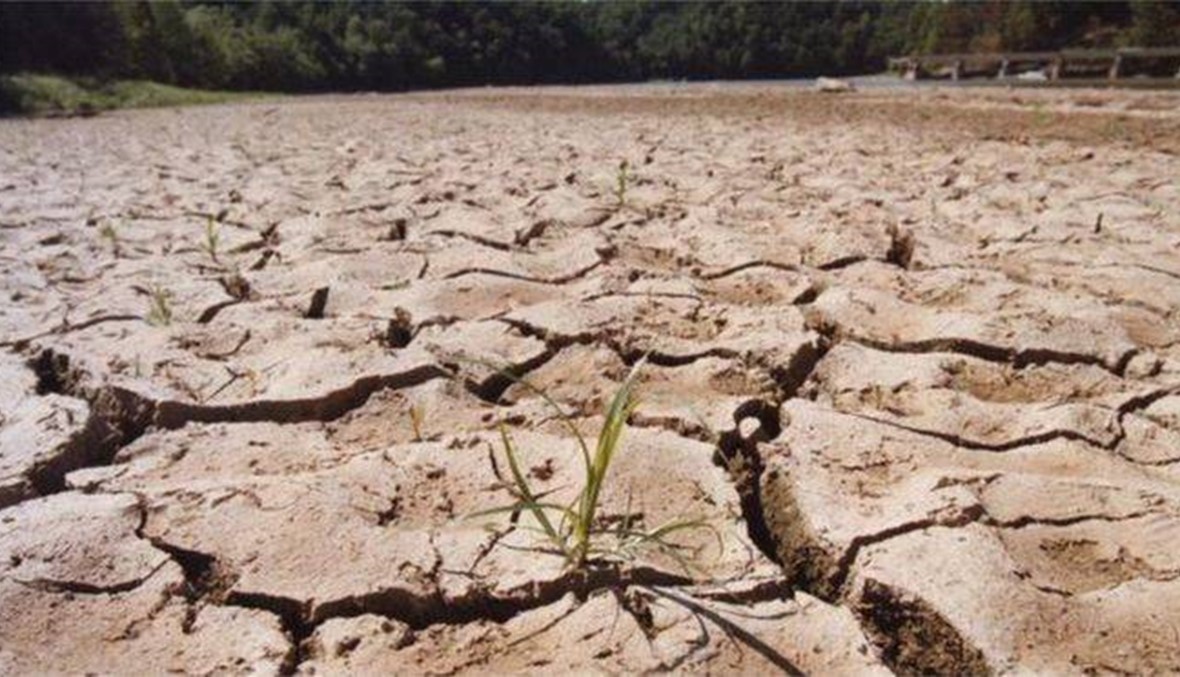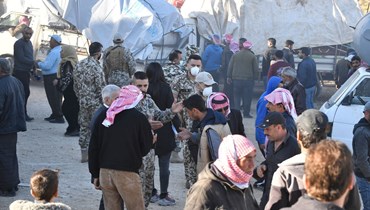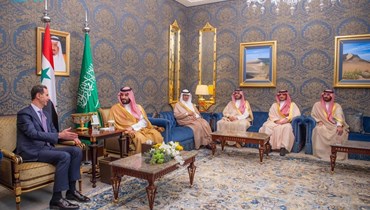MENA water crisis grows in consequences in a race against time
AMMAN: What better place to hold a conference to examine potential solutions to the growing water crisis in the MENA region than in Jordan, which faces one of the severest water shortages in the region – thus far the 2016/17 winter period has witnessed no rain, as a tangible example.
AMWAJ, meaning 'waves' in Arabic, an international sustainability and entrepreneurship forum, organized by PepsiCo, in partnership with Revolve Media, a Brussels-based communications agency working toward sustainability, Ahead of the Curve, a consulting firm dedicated to the promotion of sustainable management and WAMDA, a knowledge platform for entrepreneurs, met November 28-29 in the Jordanian capital. "The event was aimed at catalyzing a culture of partnership between governments, communities, entrepreneurs, media and the private sector to make the world more sustainable and strengthen links with society,' organizers told Annahar, which was attending the meeting.
AMWAJ convened leaders from across the private and public sectors, media, as well as social entrepreneurs, to come up and discuss action in key areas for the MENA society, including the environment, health, skills-building, gender parity and unemployment. At the center of the conference was the release of a cautionary study on the rapidly declining state of water resources in that is broadly defined as the greater MENA region, the "Water Around the Mediterranean" report.
"In the Middle East and North Africa and the Mediterranean region are the two most water-scarce regions in the world. Water availability per person per year has declined sharply over the last 50 years and is today a tenth of the average global water availability," said the report, adding "In Jordan, one of the most water-stressed countries in the world, many domestic users receive less than eight hours of water per week and water availability has declined from 3,600 cubic meters per person per year in 1946 to 123 cubic meters in 2014. "
As the report points out, people throughout the region have yet to face up to this yet alone notice its daily dysfunction. The report notes that even though rivers and springs are running dry, trees are dying and deserts are spreading, while many people in the region remain unaware of the water crisis – of its causes, its long-term impacts and why certain viable solutions are not being implemented.
"Water has remained low on the political agenda due to instability, violent conflict and economic and political insecurity in the region constantly overshadowing the reality of steadily worsening scarcity. And yet it is an urgent issue: according to the UN, by 2025 the water supply in the MENA region will be only 15 percent of what it was in 1960," according to the study.
The "Water Around the Mediterranean" report explores different aspects of the growing water crisis in the MENA and Mediterranean regions. From the problems of severe water pollution in Egypt's second-largest city Alexandria, to debates about high agricultural water use in Spain or efforts to change wasteful water use behavior in Saudi Arabia, this bilingual English-Arabic report highlights the challenges of sustainability of managing the region's water resources.
The report is divided into eight sections, covering six countries from Morocco and Spain in the west to Jordan and Saudi Arabia in the east, with two additional sections addressing regional issues including the state of the Mediterranean Sea and trans-boundary water sharing. Each article is accompanied by maps, graphs and fact boxes that help contextualize the issues at stake.
The opening keynote speeches at AMWAJ were delivered by Jordanian Princess Sumaya El Hassan, president of the Royal Scientific Society, Ahmad Al Hindawi, United Nations Secretary-General's Envoy on Youth; Ambassador Andrea Matteo Fontana, EU Delegation to the Hashemite Kingdom of Jordan; and Dr. Tarik Yousef, Director of the Brookings Doha Center.
El Hassan emphasized that according to the US National Aeronautics and Space Administration (NASA); the region that includes Jordan is facing nearly a 1,000 year historical drought; adding however, that the combined expertise of the region may yet find a solution to water preservation and reuse.
"No one can deny that the West Asia and North Africa (WANA) region is rich in scientific knowledge. Just one figure; today we have over 136,000 registered engineers in Jordan, that's equivalent to a city bigger than Aqaba. Imagine what that concentration of expertise could do if it was used to fulfill its potential," said El Hassan.
"The three interlinked sectors of energy, food and water pose unprecedented existential threats to all our people; I believe that these must be the constants of which science for peace is built," she said.
Tarik Youssef, director of the Brookings Doha Centre, called upon Arab entrepreneurs to look for innovations that would all help the key unconnected sectors of water, energy and environment.
Ahmad Al Hindawi, the UN Secretary General Envoy for Youth, noted that the key issues in the region – beyond just the profound challenge of managing scarce water resources – were security, education, and employment.
"I always say that for this region to unlock the power of the youth, it has to do few simple things. 60 million jobs can't be created by year 2020 by governments right? I think even this public private partnership cannot generate this number of jobs, so what we are telling people is to stop writing CVs and start writing business plans. Stop looking for jobs and start inventing jobs," Al Hindawi said.
Ahmed El Sheikh, Senior VP at PepsiCo Egypt and Jordan, noted that, "We designed AMWAJ to create a shared understanding of sustainable development. In a region severely affected by issues like water shortages, youth unemployment, and education and skills gaps, all stakeholders must be part of the solution."


 اشترِك في نشرتنا الإخبارية
اشترِك في نشرتنا الإخبارية











